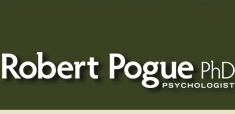Psychodynamic Psychotherapy is an approach to psychotherapy that includes not only the exploration, understanding and resolution of the external issues and problems of which we are aware (the conscious struggles in life) but also includes the exploration and understanding of the dynamic nature of one's unconscious (the parts of ourselves of which we are not aware). Our unconscious, internal conflicts significantly contribute to our day-to-day reactions to stressful situations and relationships. Our inner and outer lives are forever connected and this connection is the primary focus of psychodynamic psychotherapy.
What is Emotion-Focused
Psychotherapy?
Emotion Focused Psychotherapy, commonly referred
to at EFT (Emotion Focused Therapy) is a short-term (8 to
20 sessions) structured approach to couple therapy formulated
in the 1980s by Dr. Sue Johnson and Dr. Les Greenberg. The
focus of EFT is to restructure emotional experiences and
interactions between couples. A relatively substantial body
of research now exists on the effectiveness of EFT and this
research shows stable results over time. When a relationship
is in distress, the couple will typically hold this pattern
of distress by maintaining a rigid and constricted pattern
of interaction which inevitably creates negative emotion.
In EFT, couples are encouraged to see the negative pattern
of interaction as the focus of change as opposed to the
view that one's spouse needs to change. When the old pattern
begins to shift, safe emotional engagement and secure bonding
become possible.
Father
Hunger Research
Robert Pogue's doctoral research involved an extensive investigation
into the emotional experience of "Father Hunger."
In this study, he examined how the physical and emotional
absence of a father influences the psychological development
of the child and how this early childhood experience manafests
itself in adult life. For the purposes of this research
study, Father Hunger is defined as the son's conscious and
unconscious, persistent, emotional experience of longing
for a deep, satisfying connection and relationship with
an older, wiser, and stronger man to guide him, believe
in him, affirm him, concretely teach him, challenge him,
correct him, and bless him. While this study is focused
on the son's experience, much of the research would also
apply to the daughter's experience.
Romantic Love
Research
Robert Pogue's Masters degree thesis research was a depth-oriented
study of the psychology of romantic love. The study examines
the images, mystery, and meaning of romantic love as compared
to the form of love that seems to exist in long-term, committed
relationships. In our modern, Western culture, romantic
love has risen to a state of idealization where it is commonly
thought of as the only true love and the fundamental requirement
for marriage and happiness. This research study explores
the passion and pain of both forms of love and distinguishes
them by the different psychological levels on which they
exist.
Results of My Research on Father Hunger - Robert Pogue PhD
In this study, several men were interviewed about their experience of living without a father or living with an emotionally absent father. Shown below are the nine general themes that were sifted from the interviews. Beneath each general theme are listings of the more detailed lived experience of father hunger. Each detailed, point-form listing begins with the emotional experience (designated by the bullet symbols) and follows with the outcome experience (designated by the arrowhead symbols). The outcome experience can be thought of as what results from the emotional experience suffered. In some cases, this may be a change in behavior or some other adaptation, defense, or coping mechanism. It should be noted that not all men interviewed experienced each of the emotions and outcomes from the detailed listings. These listings represent the overall, composite depiction of the lived experience of father hunger.
Longing & Hunger
· Longs, yearns, or hungers for contact with his actual father or father figures.
· Longs to be mentored, guided, instructed and spoken to.
· Longs for contact with the father’s body.
· Longs for the good father who will love, recognize, approve, protect, anoint, and bless him.
· Feels little or no attachment with his father but longs to feel attached.
Ø
Develops an emotionally penetrating and
lasting envy of close father-and-son connections and
relationships.
Shame
· Feels shame about his masculinity or his sexuality, or both.
· Feels incomplete, deficient, or defective. Feels as if he does not belong or fit in. Feels different than the general male population.
· Feels not-man-enough, not-father-enough, not-husband-enough, or not-son-enough, or all of these.
· Feels like an inconvenience and not worthy of his father’s affection, interest, and attention.
Ø Blames himself for his father’s absence and develops an attitude about himself focused on self-loathing. For example, “I am a mistake. I am bad. I should not have been born.”
Fear
· Fear of failing, making mistakes, being wrong, bad, or “screwing up.”
· Fear of confrontation with men.
· Fear of voicing own opinion.
· Fear of becoming a father and being an absent father himself.
· Fear of being rejected or rejecting others, fear or being rejected by own children.
· Fear of turning gay.
· Fear of one’s own safety, fear of being beaten up, fear of dying.
Ø Develops an ongoing foundational state of hyper vigilance particularly when around his father or later around other authority figures.
Anger & Aggression
· Feels uncomfortable with his own anger and aggression and the anger and aggression of others.
· Feels terrified of confrontation or initiates unnecessary confrontation, particularly with other men.
Ø Internalizes his own anger and aggression or expresses his anger and aggression to the point where it exceeds what is appropriate for the situation.
Ø Develops an overly defensive posture towards others, particularly men.
Ø Expresses anger in a passive-aggressive manner: withdraws, puts up barriers, cannot be clear and direct, avoids being vulnerable with others, withholds affection.
Grief
· Feels a sense of deep and lasting loss and grief.
· Feels sorrow that there are so few memories and so many opportunities lost.
· Feels grief over his lack of masculine confidence.
Ø Develops a sense of grief that the good, loving father will never be: the chance has passed, the opportunity is gone.
Ø Experiences a legacy of grief and sadness. Feels the grief and sadness that his father and grandfather could not feel.
Ø Develops an attitude of reluctant acceptance. “This is my life, it will not change.”
Difficult Relationships with Painful Emotions
· Feels belittled, hurt, put-down, criticized, rejected, insulted, useless, incompetent. Feels like an inconvenience.
· Feels forgotten, invisible, alone, silenced, ignored, unacknowledged.
· Feels like the whipping post for his father’s rage.
Ø Becomes overly sensitive to the feeling of rejection, particularly rejection by men. Can misinterpret an appropriate challenge from another man as a personal rejection.
Ø Develops a negative inflation. Becomes overly attached to a victim stance in life. “Poor me, I am so hard done by.”
Ø Represses emotion rather than expresses it.
Ø Unconsciously numbs emotion as a coping strategy. Can be highly susceptible to substance abuse and depression.
Intense Reaction to Authority
· Fear of father, authority, and authority figures in general.
· Fear of conflict and confrontation with men or strong, assertive women.
· Feels anger and resentment towards his father, authority, authority figures, institutions, corporations, and society’s rules.
· Feels a deep and overwhelming need to please his father, to win his recognition, approval, and blessing—to be noticed by father.
· Feels a lack of connection with his own sense of internal authority.
Ø Rebels against his father, authority, authority figures, institutions, corporations, and society’s rules.
Ø Becomes driven in the outer world by the need to seek approval: can become a perfectionist, a workaholic, overly competitive, or married to consumption, status, and the accumulation of material wealth.
Ø Develops an exaggerated affection for approving authority figures. Imbues the good father with divine status, puts him on a pedestal and feels vulnerable to his influence.
Deprivation of Guidance
· Feels deprived of guidance and direction. “I had to wing it on my own.”
· Feels ambivalent and confused about masculinity, manhood, and about life in general.
· Feels thrown into manhood or fatherhood or both. Feels uncertain how to be a man, a husband, or a father, or all of these.
Ø Becomes overly cautious and has difficulty making decisions and being clear and direct with others.
Ø Becomes overly self reliant to the point where he cannot ask for help and ignores helpful advice. “It’s my way or the highway, ” or “I can do it on my own.”
Ø Develops a familiarity with the experience of silence and the lack of dialogue regarding emotional and relational tensions. “It’s best not to say anything.”
Disconnection from Self
· Feels empty inside. Feels that some internal, necessary part of himself is missing. A hole develops in his sense of self.
· Feels like an extension of his father rather than a separate person. In the extreme case, he becomes psychologically merged with his father with no sense of his own identity separate from his father’s.
· Feels silenced by his father and unable to voice his own needs.
· Feels depressed and disconnected from his true self and his own personal creative path.
Ø Is compelled to follow the masses rather than follow his soul. Has little sense of his identity and calling in life. Does what others tell him to do. “I did what I was supposed to do.”
Ø Develops a need to care for others’ emotion to the detriment of understanding and expressing his own feelings.
Ø Ignores his own needs and seeks to gratify others’ needs.





